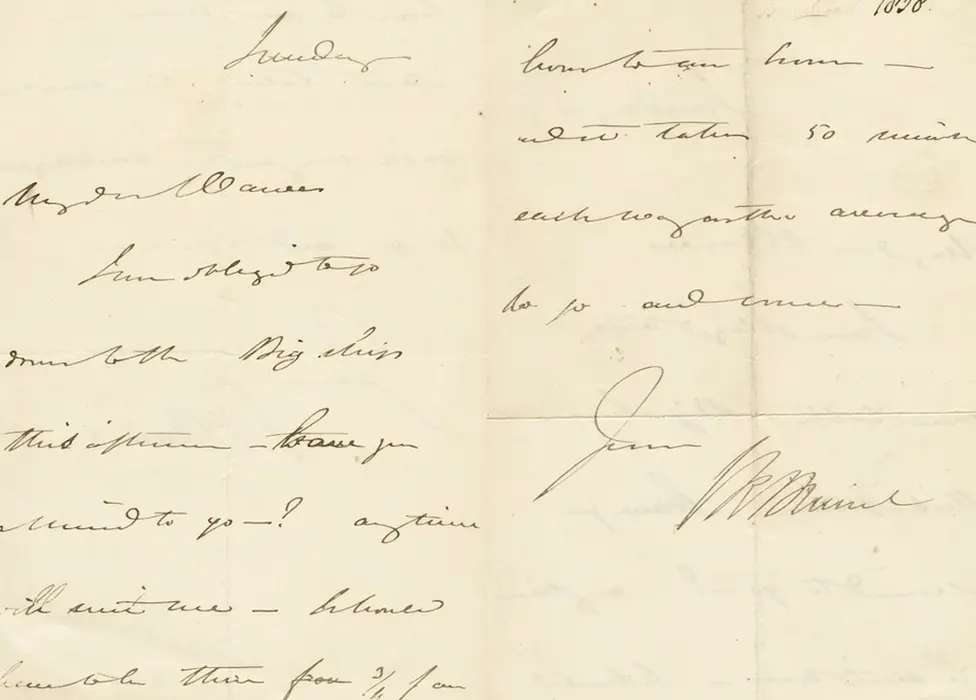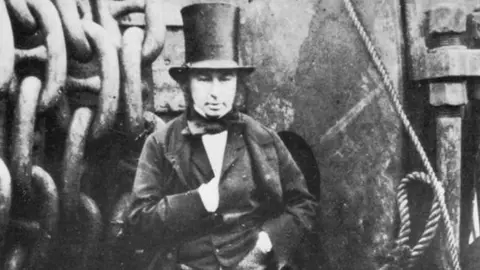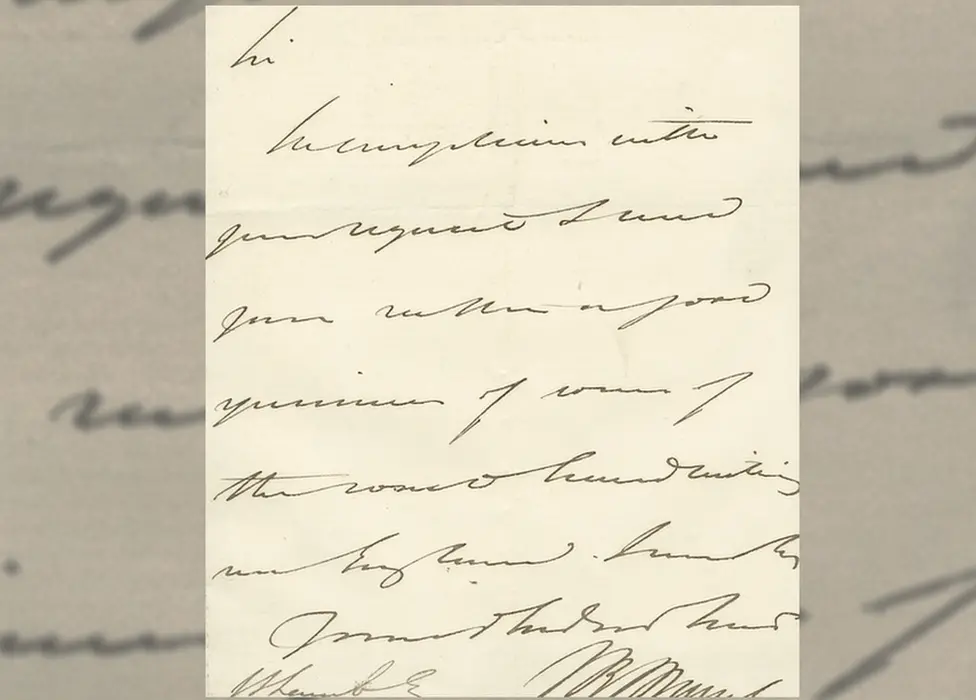Decoding Brunel's 'illegible' handwriting using AI
 SS Great Britain Trust
SS Great Britain TrustA computer is being trained to decode the "almost impossible to read" handwriting of the British engineer Isambard Kingdom Brunel.
For years a team of researchers has been poring over diaries and documents, but it has been a very time-intensive process.
Now the documents are being scanned into a computer which is learning to decipher the thousands of pages.
The computer's ability is improving and it can now read 65% of Brunel's words.
 PA
PA"It's hugely sped up the process and we're learning new bits about his life; there's so much potential to unlock," Nick Booth from the SS Great Britain trust said.
"We've got several thousand pages of IKB's handwriting.
"Only a small amount has gone through so far and most of that's been to train the software."
Bristol's SS Great Britain is home to the most comprehensive collection of material detailing the life and works of Brunel, with more than 65,000 objects.
New handwritten artefacts, such as a letters or diaries, go through a lengthy process of transcription by volunteers.
 Getty Images
Getty ImagesOne volunteer looks at each document and a second checks it. If there are any disagreements a third will decide which is the more likely.
But his handwriting - described as "elegant and beautiful" in the earlier part of his life - was latterly said to be "almost impossible to read".
That is where the Transkribus software comes in.
This was developed by the University of Innsbruck in partnership with University College London
It works by learning the specific quirks of the author's writing, comparing it against examples which have already been transcribed.
 SS Great Britain Trust
SS Great Britain TrustIn the case of Brunel's handwriting the software needs to have a minimum of 15,000 words to make sense of it.
It then makes a best guess at what he wrote.
"We're only just starting to experiment as to what this software can achieve and what secrets this could unlock," Mr Booth said.
He hoped the software would ultimately speed up the process of going through the documents and diaries and would help other Brunel projects with their research.

The answer:
Sir, In compliance with your request I send you rather a good specimen of some of the worse handwriting in England. I [remain Sir ?] Your [humble servant ?] [Yours?] I K Brunel.

